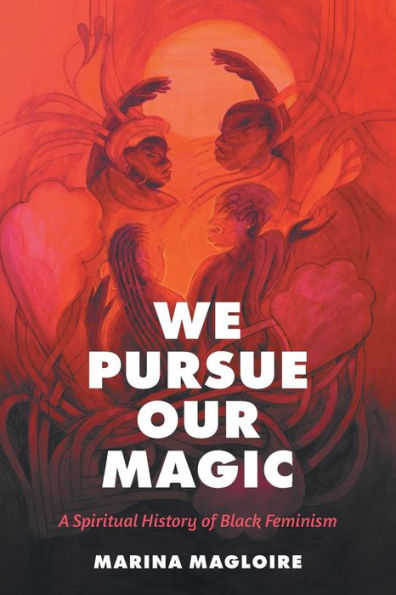We Pursue Our Magic is a scholarly examination of the influence of Afro-Diasporic religion in the lives and work of prominent American Black feminist artists and academics, many of whom were also lesbian or bisexual. These women produced powerful work and lives with integrity, work that amounts to a feminism parallel to but distinct from the White American feminism that we are familiar with.
All these intersecting identities feature in this nuanced and exceptional work. The fact that these women were American means that they carried often awkward cultural baggage into their anthropological and political search for meaning in their ideas of Africa or Haitian cultures and spirituality. That they were Black and often looking for a universal Black experience or essentialized Black culture when the hundreds of African nations and experiences do not conform to the American Black identities led to contradictory experience. That they were feminist and female in cultures that are male dominated and often in liberation movements that were misogynist and essentialist. That they were queer in homophobic movements and cultures. Despite these issues, their work and influence are significant.
I know the work of most of these women by reputation only, and in some cases barely their names: Katherine Dunham, Zora Neale Hurston, Lorraine Hansberry, Lucille Clifton, Audre Lorde, Toni Cade Bambara, Nina Simone, Luisah Teish, and others. I see this ignorance as embarrassing now (although “Had we but world enough and time,” there is so much more to read and think about), as I am so much more familiar with the White American feminist intellectual tradition.
Magliore walks us through the principal works and the importance of each as well as illuminating relationships and influences among them in establishing the existence of an intellectual tradition of American Black feminism. There is so much going on here, as Magliore introduces us to a whole parallel tradition that I, for one, know very little about. This rich and very interesting tradition is deeply influenced by the Afro-diasporic religious traditions, particularly Haitian Vodou. She situates these women in their times and includes the importance of the American invasion and occupation of Haiti in the 1930s, the American Black nationalist movements of the 1960s and 1970s, the influence of the legend of Marie Laveau, and the neo-Paganism of recent decades. The personal and professional rivalry of Dunham and Hurston, the close friendship of Simone and Hansbury, the awkward ‘rainbow coalition’ of neo-Paganism around Teish, and a very wide range of sources and artistic and cultural influences are woven into her story. She discusses influences and ideas in some depth in the work of these various women, more effectively that I can in a short review.
This is a complex and substantial work of scholarship and analysis. I will very highly recommend it for the introduction to this fascinating intellectual tradition and the very interesting work of these women.
~ review by Samuel Wagar
Author: Marina Magliore
University of North Carolina Press, 2023
205 pg. Paperback £23 / $41 Can / $29 US

